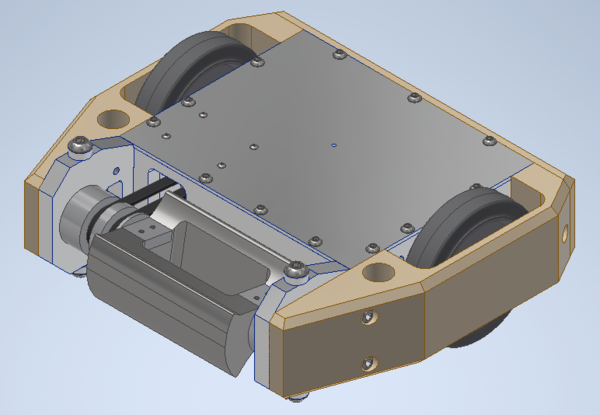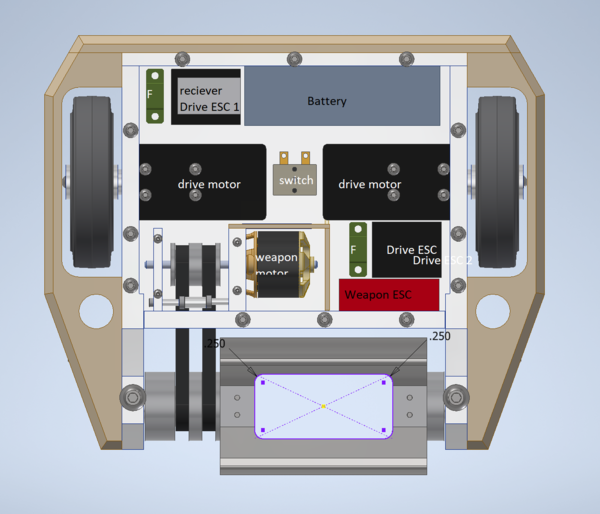Difference between revisions of "Maori Design Guide"
(→Design Decisions) |
(→Design Decisions) |
||
| Line 66: | Line 66: | ||
* Material: Aluminum 6061-T6 | * Material: Aluminum 6061-T6 | ||
** machined in house, so ease of machining outweighed material selection | ** machined in house, so ease of machining outweighed material selection | ||
| − | ** the brunt of forces are received by the beater bar and chassis, this material selection allows | + | ** the brunt of forces are received by the beater bar and chassis, this material selection allows deformation of hubs before the beater bar and chassis, which took longer to machine |
| − | deformation of hubs before the beater bar and chassis, which took longer to machine | ||
* Shape: | * Shape: | ||
Revision as of 17:34, 11 April 2020
Contents
Introduction
test
Design Basics
Chassis
Overview
Maori's chassis consists of six parts: A top, bottom, front, and back plate as well as two side plates. All of these components are made from 6061 Aluminum. The side plates provide thicker support towards the weapon, while allowing skids to be inserted. Maori's drive modules also fit into the side plates. The front plate allows for belt access between the interior of the robot and the weapon pulley. It also fits into the side plates The bottom and top plates provide slots for interior plastic guards and bolt into the rest of the chassis.
Design Decisions
test
- Notes/Helpful Advice
- test
Armor
Overview
Maori's armor is composed of three HDPE components. This consists of two side armor blocks and a plate mounted to the back.
Design Decisions
test
- Notes/Helpful Advice
- test
Drive
Overview
test
Design Decisions
test
Calculations
test
- Notes/Helpful Advice
- test
Weapon
Overview
Maori's weapon system consists of a steel drum to cause damage to opponents and two aluminum hubs to interface the weapon with the chassis. The drum is constrained to the hubs with bolts perpendicular to the axis of rotation to minimize loosening caused by vibration. The fork shape of the hubs compromises ease of machining with functionality.
Design Decisions
Beater Bar
- Material: S7 Tool Steel
- Profile: prioritized compatibility for EDM
- constant cross-section
- axisymmetric to avoid vibration induced by skewed center of mass
Hubs
- Material: Aluminum 6061-T6
- machined in house, so ease of machining outweighed material selection
- the brunt of forces are received by the beater bar and chassis, this material selection allows deformation of hubs before the beater bar and chassis, which took longer to machine
- Shape:
Calculations
test
- Notes/Helpful Advice
- test
Electronics
Overview
Drive
test
Weapon
test
- Notes/Helpful Advice
- test

